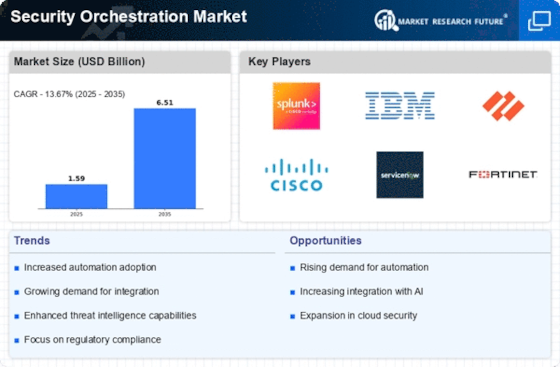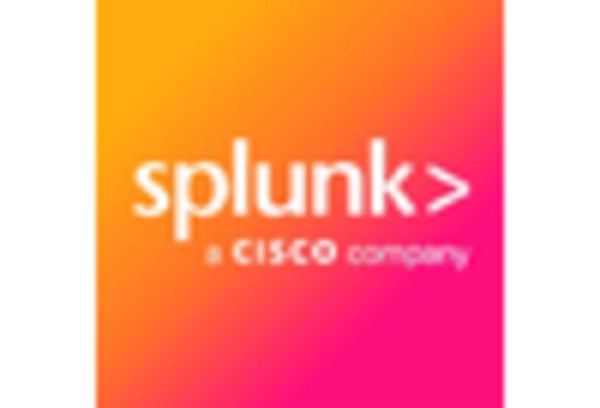Market Trends
Key Emerging Trends in the Security Orchestration Market
In order to efficiently counter cyber threats and expedite incident response, market trends in the security orchestration sector indicate that integrating and automating security activities is becoming increasingly important. The growing use of Security Orchestration, Automation, and Response (SOAR) technologies is one prominent development in the security orchestration sector. SOAR solutions are being used by organizations to automate repetitive processes, consolidate security operations, and coordinate incident response workflows among various security tools and systems. The desire to improve security operations' efficacy and efficiency is what's driving this development, allowing security personnel to react to attacks quickly and effectively.
Furthermore, the market for security orchestration is seeing a sharp increase in demand for SOAR systems' threat intelligence enrichment and integration features. In order to improve their contextual understanding of security incidents and make well-informed judgments during incident response, businesses are attempting to utilize machine-readable threat information, data enrichment sources, and threat intelligence feeds. This pattern emphasizes how crucial it is to incorporate threat intelligence into security orchestration processes so that security teams may correlate and rank security events according to the most recent threat information and compromise indicators.
Furthermore, a noticeable trend is the convergence of DevSecOps, cloud security, and security orchestration. Integration of security orchestration into cloud environments and DevOps pipelines is becoming more and more necessary as enterprises adopt cloud-native designs and agile development processes. The industry's emphasis on integrating security into the software development lifecycle and making sure that security procedures work in unison with cloud-native infrastructure and apps is reflected in this trend. In order to meet the need for integrated security orchestration and automation inside cloud and DevSecOps ecosystems, the security orchestration industry is changing. Adaptive response and security playbooks that facilitate dynamic, context-aware incident response actions are also receiving increased attention in the security orchestration market. Security orchestration solutions with adaptive response playbooks, which let security teams automate responses based on how security incidents are changing in context, are becoming more and more important to organizations. The necessity of agile, adaptable security orchestration skills that can adjust to the dynamic nature of cyber threats and quickly changing attack scenarios is emphasized by this trend.


















Leave a Comment